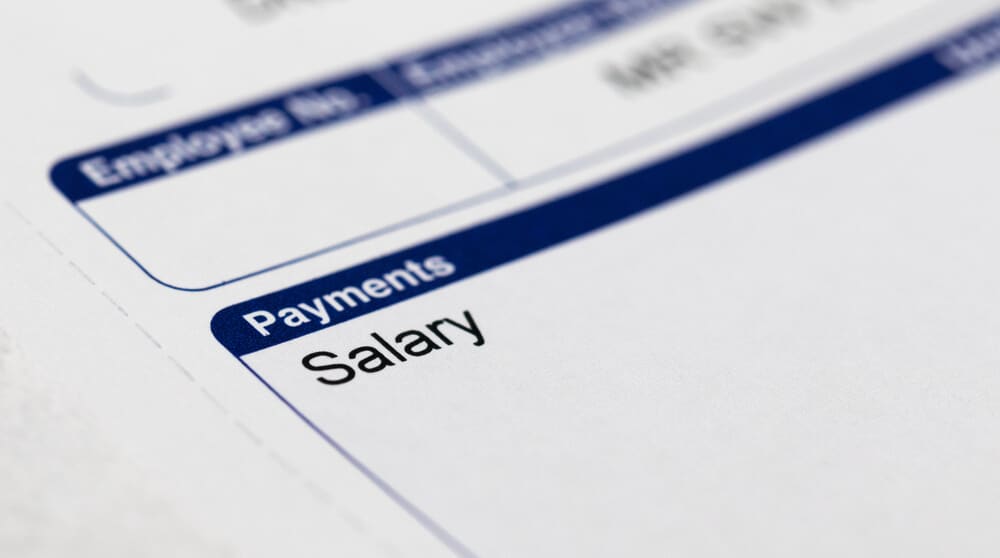If you owe money to the Department for Work and Pensions (DWP), they can recover it from you using something known as a ‘Direct Earnings Attachment’ (DEA).
In short, this is a way of taking money that’s owed from your salary before it reaches you.
No one likes the idea of having money taken from them without their say – so the thought of a DEA is often worrying, especially if you don’t know anything about the process.
To help you understand DEAs, we’ve put this guide together to explain everything there is to know about how they work, including:
- How a Direct Earnings Attachment works
- What kinds of debts are collected using Direct Earnings Attachments
- How much you’ll be expected to pay back from your wages
- How employers deal with DEAs
- Stopping a Direct Earnings Attachment
What is a Direct Earnings Attachment?
A Direct Earnings Attachment is a process used by the Department for Work and Pensions to recover debts that they have been unable to collect in other ways.
A DEA can be used to collect a range of different DWP debts, including:
- Benefit overpayments (such as working tax credit or child tax credits)
- Social fund loans
- Civil penalties
- Universal Credit advance payments
- Budgeting loans
If they have tried other ways of recovering a debt from you and have been unable, the DWP will issue a Direct Earnings Attachment Order to your employer.
Your employer has to take the amount the DWP ask for from your pay and send it directly to pay off your debt.
Can other debts be collected using a DEA?
Usually, only the DWP debts we’ve talked about above will be collected using a DEA. However, there is one exception.
If you receive housing benefit payments and have received an overpayment, this will be considered to be a debt owed to your local authority.
If you have debts of this kind owed to local authorities, the DWP may recover the money owed at the same time as collecting money that’s owed to them.
If the DWP intends to recover money owed to a local authority at the same time as collecting their own debt, they’ll let you know before the Direct Earnings Attachment commences.
How does someone get a Direct Earnings Attachment?
A DEA is usually a last resort for the DWP, and they will generally try to set up a payment plan with you before trying to set up direct earnings attachments.
If you haven’t engaged with the DWP after being asked to repay any money you owe them, they will automatically begin the DEA process.
Is a Direct Earnings Attachment the same as an attachment of earnings?
Direct Earnings Attachment and ‘attachment of earnings’ sound very similar – but they’re slightly different and used for different things.
Both types of debt recovery methods take money directly from your earnings to repay a debt.
However, a Direct Earnings Attachment (DEA) is issued by the DWP, and an attachment of earnings (AOE) order is issued by a court.
This means an AOE can be used to recover a huge range of debts – but the person or company you owe will need to take you to court and go through a lengthy process before an AOE is issued. However, a DEA doesn’t need a court order to be actioned, so the DWP can move quickly to recover money owed without requiring anyone else’s input.
Does HMRC use Direct Earnings Attachments?
No, but they have a system that’s very similar – known as a Direct Earnings Notice (DEN).
This works in virtually the same way as a DEA but is used to collect outstanding tax debts, including Income Tax, National Insurance contributions, and Student Loan repayments.
What counts as an employee’s earnings for the purposes of a DEA?
You now know that a DEA can be used to take money from your income directly – but there are only certain types of income that the DWP can deduct money from.
The DWP can use a DEA to take money from:
- General employment income
- Bonuses
- Commission
- Sick pay and compensation
- Overtime
However, they cannot use a DEA to take money from:
- Statutory maternity pay
- Statutory paternity pay
- Statutory redundancy pay
- Statutory adoption pay
- Repaid working expenses (such as reclaimed fuel, transport, or equipment buying costs)
Debt Calculator
How much of my income can be taken to pay towards a Direct Earnings Attachment?
If someone becomes subject to a DEA, money can be taken from that employee’s net earnings (that’s how much you make after income tax, national insurance, workplace pension contributions and other deductions) at one of three different rates:
- Standard rate (20% of your salary)
- Higher rate (40% of your salary)
- A fixed-rate amount (decided upon by DWP debt management)
This rate will be calculated by the DWP based on how much you earn.
However, since the DWP doesn’t know what your outgoings are like, they may be open to a discussion about lowering the amount you pay if you find that a DEA is causing you financial hardship.
The DWP will take this amount either weekly or monthly, depending on how your employer’s payroll system is set up.
Can I avoid a Direct Earnings Attachment if I know my employer?
If you find yourself facing a Direct Earnings Order and you know your employer personally, it might be tempting to talk to them about working out a way around the DEA.
Some people wonder what would happen if they could hide their true earnings or simply ask their employer to ignore the request to set up a DEA.
In short, this is a bad idea for everyone involved.
From your employer’s point of view, they are legally obliged to set up the DEA according to the DWP request.
If they don’t, or they set it up so an incorrect amount is taken, they may find themselves facing legal action and could be fined.
As an employee, you could also face legal action, penalties, or even a criminal conviction if you provide any false information in an attempt to avoid a DEA.
Do I have to go to court if I get a DEA?
No, you don’t have to attend court for a DEA to be set up. In fact, the court system isn’t involved in the Direct Earnings Attachment process at all – the DWP has the power to implement this kind of action itself.
Can Direct Earnings Attachments be stopped?
Whether or not you can stop a DEA depends on how far into the process you are.
If you’ve been threatened with a DEA, but it’s yet to be put into action, then you should contact the DWP debt management team ASAP and talk to them about setting up a payment plan.
However, if DEA deductions are already being made, it’s very difficult to get the DWP to stop this in favour of a payment plan.
This is simply because a DEA is a very effective and hassle-free way for them to get back the money they’re owed. So, when it’s set up, they will tend to keep it in place to make sure they recover their money.
Could I lose my job if I get a DEA?
No – having a DEA shouldn’t result in you losing your job. In fact, it would be illegal for an employer to dismiss you purely because of a Direct Earnings Attachment.
That said, some professions and companies have strict rules about employees getting into financial difficulty.
This is usually if money problems might impact your ability to do the job or if your role puts you in a position of financial trust.
If you think you’re being unfairly treated because of a DEA, you should seek legal advice so you understand your rights and what to do if those rights are being violated.
How will an employer handle a Direct Earnings Attachment?
As well as knowing what a DEA is and how people find themselves in the Direct Earnings Attachment process, it’s also useful to know how your employer will handle the process.
Typically, it will look like this:
Receiving the order: Your employer will get a DEA order from the DWP. This will be the first time they learn about the process taking place for you.
Review of the order: Your employer should carefully review the order to make sure it covers all the information they know. They will be able to make sure the DWP rates are correct and safeguard any protected earnings – such as statutory pay, guaranteed minimum pension contributions, and similar.
Calculating deductions from salary/compensation payments: The person responsible for payroll at your employer’s company will calculate exactly how much should be taken from your pay based on the rates the DWP have asked for.
Informing you: At this stage, your payroll department should let you know that they have received the order and how much will be deducted.
Implementing the DEA: From the next possible payroll run, the deductions will begin to be taken from your salary.
Payments sent to the DWP: The amounts that have been deducted from your wages will be sent to the DWP in line with their order. The employee will have to make these in a timely manner to avoid possible penalties from the DWP.
Record keeping: All information relating to payroll and your DEA should be kept by your company to evidence what they have done. This will include amounts sent, dates that payments were made, and the ongoing calculations needed to make sure the correct amounts are sent.
On-going payments: The company should make sure that payments to the DWP continue until they hear that the DEA is satisfied.
As with all other personal and financial information held by your employer, all information relating to your DEA should be held according to strict privacy laws.

Why choose YourDebtExpert?
- Write off unsecured debts over £5,000
- Stop interest and charges soaring
- Reduced payments from £85 per month
What should you do if you’re facing a Direct Earnings Attachment?
If you think you’re likely to get a Direct Earnings Attachment, then the process will be handled almost entirely between the DWP and the person responsible for payroll at your employer’s company. In short, there’s nothing you need to do to help set it up.
However, the DWP will inform you if they intend to implement a Direct Earnings Attachment.
When they let you know, this is the time to talk to them if you’d like to avoid having a Direct Earnings Attachment set up.
They will usually be open to talking to you about a repayment plan – but it’s essential you stick to any agreement you make to avoid them continuing to set up the DEA.
If there’s any part of the process you don’t understand or if you think any mistakes have been made, it’s essential that you seek out professional debt advice and talk to your company’s payroll department. A Direct Earnings Attachment can put a tight squeeze on your personal finances – so it’s best avoided if at all possible.





